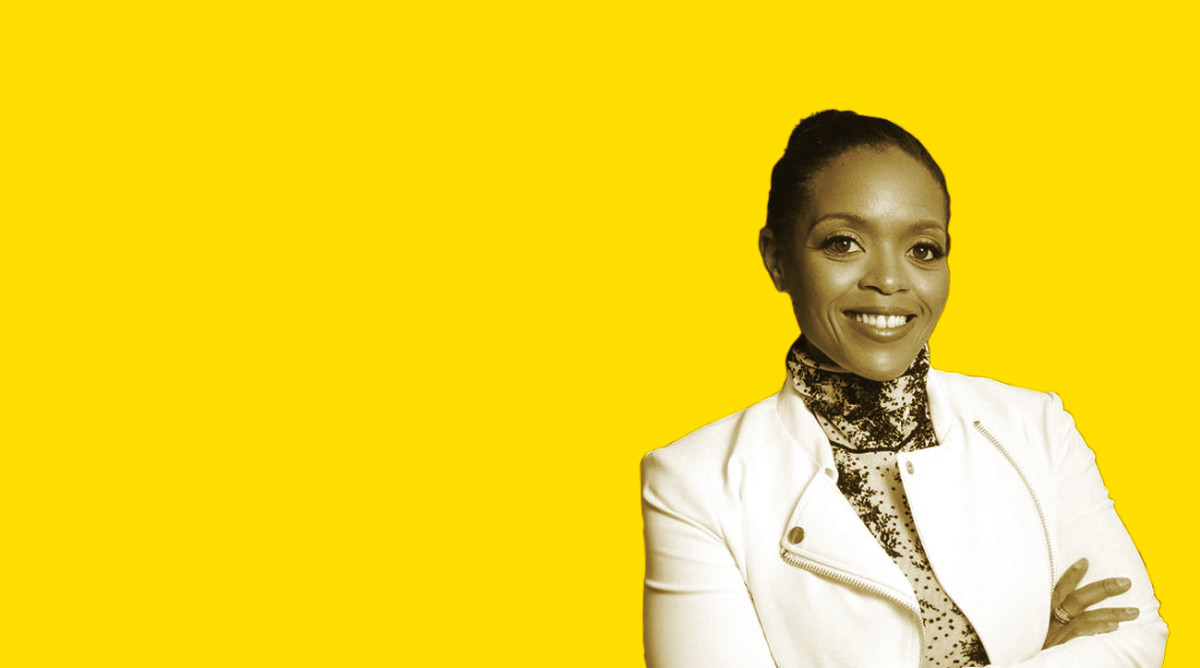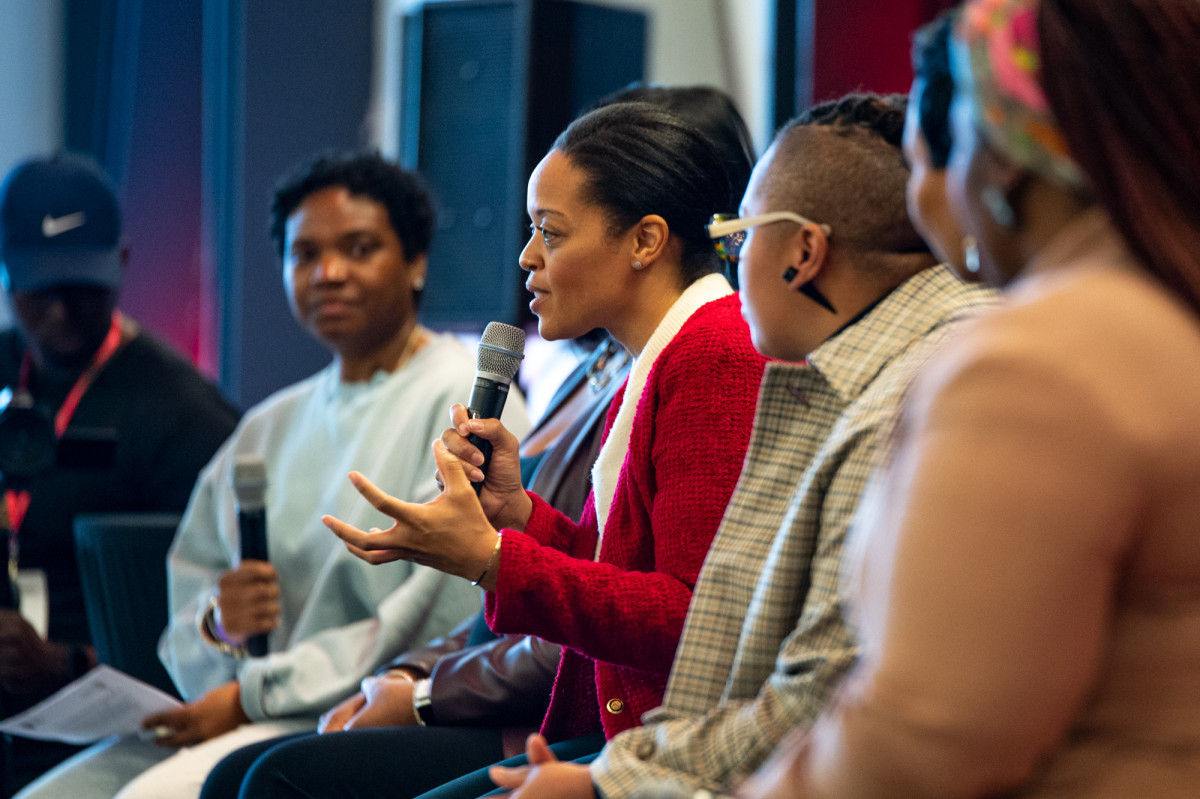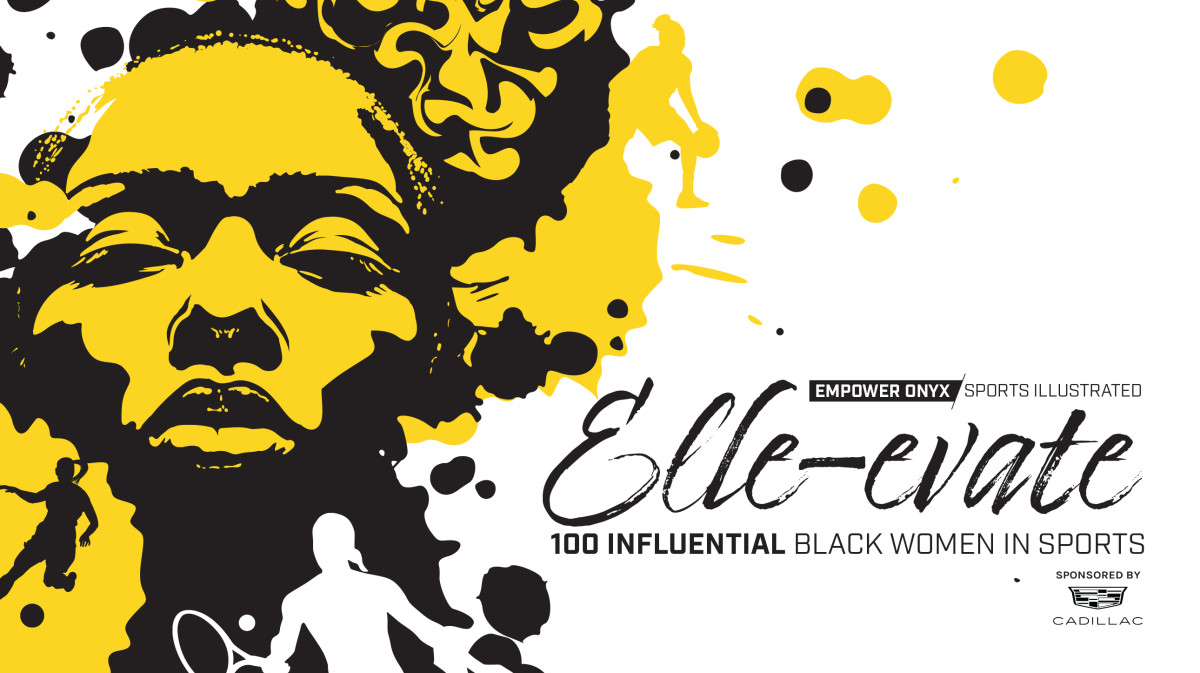How Danita Johnson Is Flipping the Field


Sports Illustrated and Empower Onyx are putting the spotlight on the diverse journeys of Black women across sports—from the veteran athletes, to up-and-coming stars, coaches, executives and more—in the series, Elle-evate: 100 Influential Black Women in Sports.
When Danita Johnson was announced as the next president of business operations for D.C. United in December 2020, switching fields took on deeper meaning. Johnson was coming from the WNBA, after five nonconsecutive years with the Los Angeles Sparks. And even though the expectations ran high in that organization and the wider fight for fans in L.A.’s super-ambitious sports market was fierce, the landscape in Washington has gotten pretty intense, too. In the past four years alone the city has celebrated the Capitals lifting the 2018 Stanley Cup, the Mystics claiming the ’19 WNBA championship and the Nationals prevailing in the World Series later that year. And even though the Commanders have yet to really get in on those winning ways, it only takes the potential of a playoff run to get fans rushing back on side.
How does Johnson compete with that? “We’re a storied franchise, too,” she says. “We’re actually one of the very first teams named after the 1994 World Cup, when MLS was founded. We won the first MLS Cup and several shields throughout our history. We had Wayne Rooney on our roster in 2019 and some success on the pitch in this past year. It’s a big thing for us to continue to raise the bar.”
If Johnson seems up to that task, it’s because big challenges are nothing new for her. With her appointment to D.C. United, she became the first Black president of an MLS club and the third woman ever to occupy such a role. And if she seems unintimidated by United’s local sports rivals, it’s because this is her second tour in the Washington area. She came up in the sports business game with Monumental Sports & Entertainment—the parent company of the Wizards, Mystics and Capitals. Which is to say she appreciates the great potential audience growth, particularly within the area’s thriving Black community. “When you look at the successes of Atlanta United and Austin FC and some of the clubs that have come online in recent years, they’ve done a phenomenal job,” she says. “For us, it is always a focus not only on our African-American market, but the diversity of D.C. We are a hub for the world.”
And despite assuming this new responsibility during the pandemic, Johnson hasn’t been much delayed from making her mark. She helped set the stage for Howard University to host a regular home football game at D.C. United’s Audi Field. And she brokered a landmark deal with NBC Sports Washington and TeleXitos for all of D.C. United’s matches to be broadcast in both English and Spanish. These efforts don’t just go a long way toward minting new fans; they could potentially funnel young players to D.C. United’s camps, clinics and maybe even its youth academy someday. The hope is to build on the success of players like Kevin Paredes, the versatile teenage academy prospect that D.C. United garnered a record $7.35 million transfer fee in January. “He started with our club when he was 13, and now he’s playing overseas,” Johnson says.

Astonishingly, Johnson had relatively few experiences in soccer before taking the D.C. United job. A Fayetteville, N.C., native, Johnson joined her high school squad for a season mostly to stay in shape for basketball, her main sport. At Monumental Sports, she led the ticket sales and service department for the Mystics in 2013 and ’14. In between stints with the Sparks she spent a year with the Clippers, helping to launch their farm team in Ontario, Calif.— a minor league opportunity that came a decade after Johnson had worked in community relations for development squads in Bakersfield and Fayetteville.
After a stint in the Phoenix Suns sales department from 2007 through ’09, the Western Carolina sports marketing alumna directed ticket sales for the WNBA’s Tulsa Shock—a championship-winning franchise that was starting over in a virgin market. “I loved that part of my life and career,” she says. “There’s nothing like putting a franchise together in the very beginning. I was there when Nolan Richardson and Marion Jones were there. To have a fanbase that had never experienced the WNBA at my fingertips, to really be able to share the story of the league and what it meant and have people buy into it and see a community wrap its arms around it was a really unique time. A lot of hard work. A lot of dedicated hours. But a good time.”
And Major League Soccer, while growing, is still nowhere near as big in the U.S. as football or baseball. But it’s still a much bigger happening than the WNBA, which survives on the thinnest of margins. Where teams in that league rent arena space in the summer, D.C. United’s Audi Stadium is barely four years old and, last fall, opened a state-of-the-art practice complex. In addition to those facilities, D.C. United ranks among the most valued MLS franchises with an estimated worth of $630 million, according to Sportico, and plenty of room to grow even more.
Which is to say Johnson is in an ideal position to do the very thing most who come to D.C. to take office seemingly can’t after a certain point—and that’s to continue dreaming big. “I think I got to stretch my imagination in different ways when I was in the WNBA,” she says. “Because it was like how do you get past all those barriers? Even now, when I look at where we are in D.C., we have several teams right across the street from Nats park, it’s like, How do we show up? But our ownership group is dedicated to the game and its international appeal. I can be in the office and play soccer back and forth with somebody. You can take it almost everywhere you go. The fact that it unifies the world and so many backgrounds in so many ways, gives opportunity to try new things and push even harder.”

Andrew Lawrence is a contributor for Empower Onyx, a diverse multi-channel platform celebrating the stories and transformative power of sports for Black women and girls.
